Computing
Pupils should be taught to: design, write and debug programs that accomplish specific goals, including controlling or simulating physical systems; solve problems by decomposing them into smaller parts; use sequence, selection, and repetition in programs; work with variables and various forms of input and output; use logical reasoning to explain how some simple algorithms work and to detect and correct errors in algorithms and programs; understand computer networks including the internet; how they can provide multiple services, such as the world wide web; and the opportunities they offer for communication and collaboration; use search technologies effectively, appreciate how results are selected and ranked, and be discerning in evaluating digital content; select, use and combine a variety of software (including internet services) on a range of digital devices to design and create a range of programs, systems and content that accomplish given goals, including collecting, analysing, evaluating and presenting data and information; use technology safely, respectfully and responsibly; recognise acceptable/unacceptable behaviour; identify a range of ways to report concerns about content and contact.
- Plus Plan
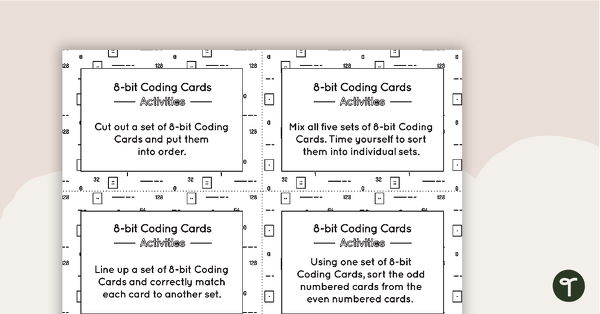
8-bit Coding Card Packs with Activities
A set of 8-bit coding cards with associated activities to assist students in understanding 8-bit coding.
- Plus Plan
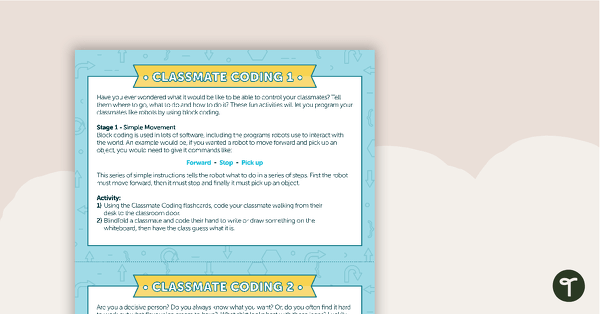
Classmate Coding - Flashcards and Activities
A set of 15 coding flashcards on individual A4 pages with four instruction and activity cards to accompany them.
- Plus Plan
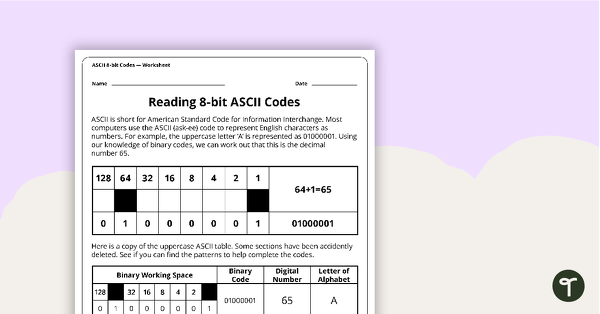
Reading 8-bit ASCII Codes - Worksheet
A worksheet to assist students in understanding what actual computer code (ASCII- current 8-bit version) looks like.
- Plus Plan
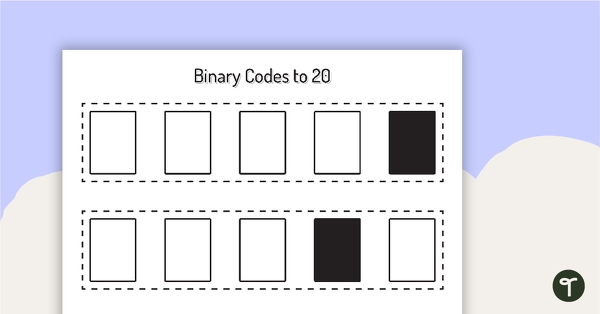
Binary Codes without Guide Dots to 20 Cards
Coding cards for teachers to use when teaching about the total numeric value of a bit code.
- Plus Plan
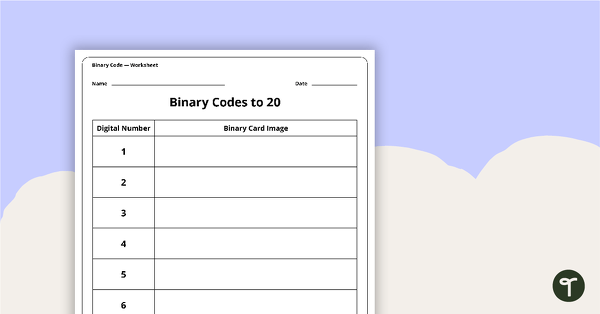
Binary Codes to 20 without Guide Dots - Worksheet
An activity for students to complete when learning how to read and write in code.
- Plus Plan
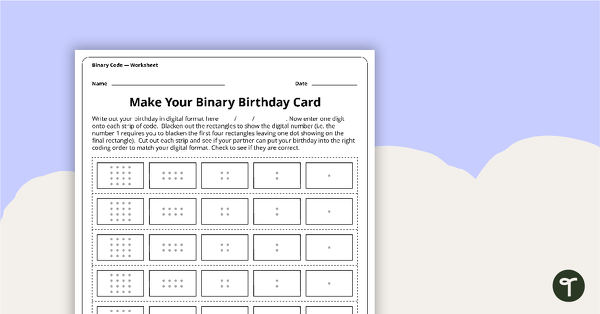
Make Your Binary Code Birthday Card Activity
A worksheet for students to use when learning about the total numeric value of a bit code.
- Plus Plan
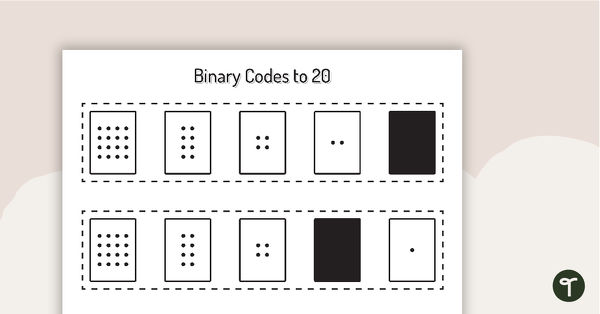
Binary Codes with Guide Dots to 20 Cards
Coding cards for teachers to use when teaching about the total numeric value of a bit code.
- Plus Plan
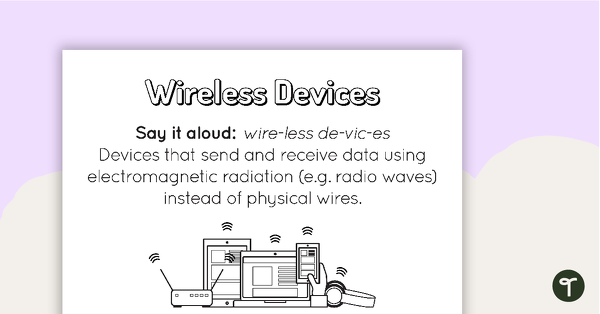
Wireless Devices Poster
A poster showing the definition and visual representations of wireless devices.
- Plus Plan
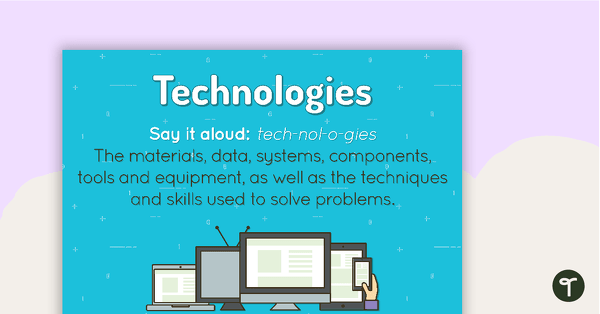
Technologies Poster
A poster showing the definition and visual representations of technologies.
- Plus Plan
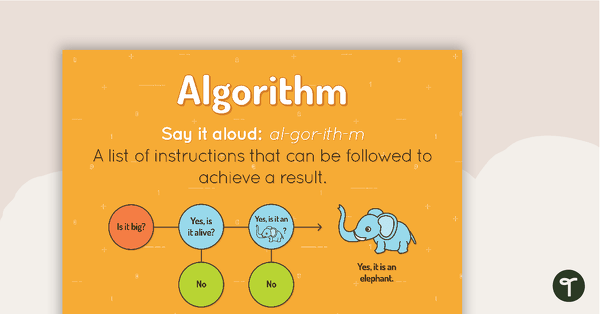
Algorithm Poster
A poster showing the definition and an example of an algorithm.
- Plus Plan
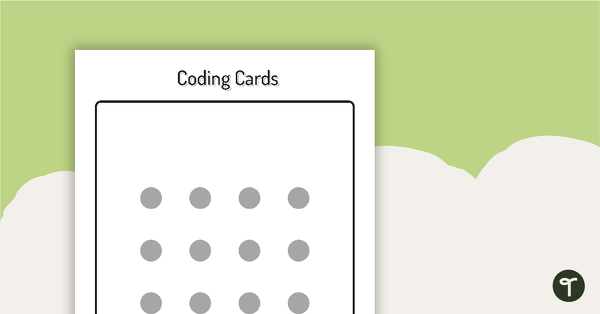
Binary Coding Cards
Use these binary coding cards to demonstrate how to ‘switch’ a ‘digit’ on or off.
- Plus Plan
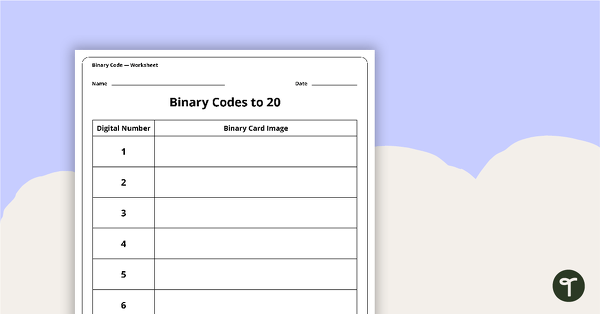
Binary Codes to 20 with Guide Dots - Worksheet
An activity for students to complete when learning how to read and write in code.
- Plus Plan
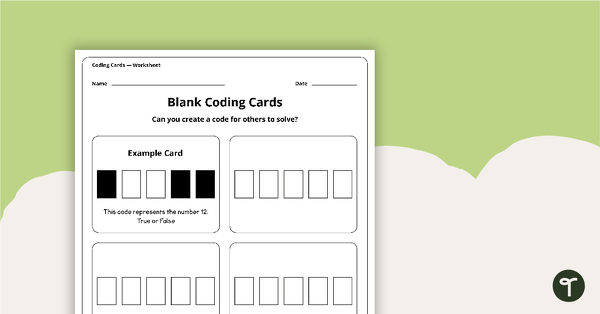
Blank Binary Coding Cards - Worksheet
A worksheet to assist students in creating their own binary codes.
- Plus Plan
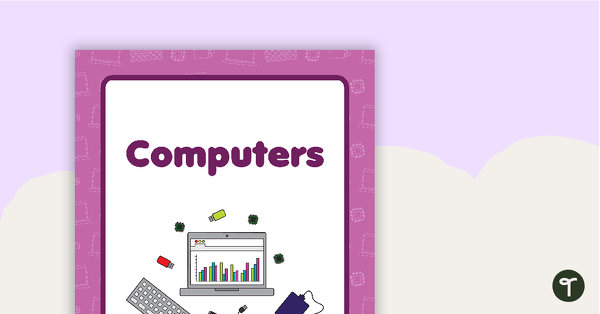
Computers Book Cover - Version 2
A Computers book cover to use on your students' workbooks.
- Plus Plan
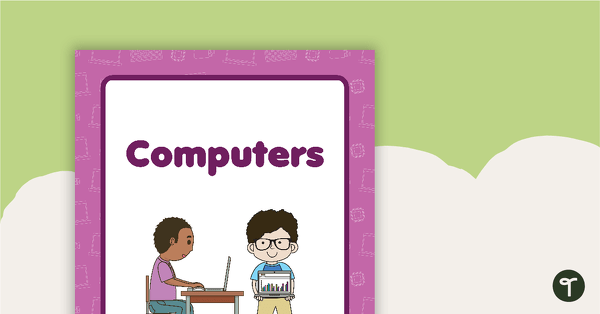
Computers Book Cover - Version 1
A Computers book cover to use on your students' workbooks.
- Plus Plan
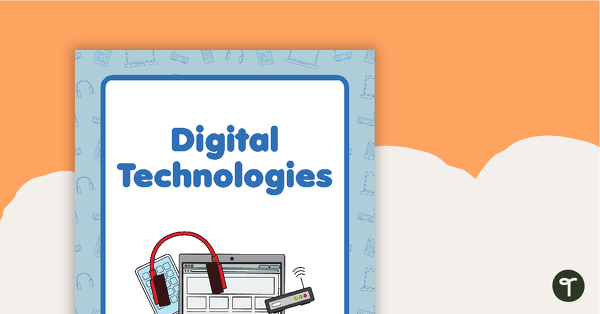
Digital Technologies Book Cover - Version 2
A Digital Technologies book cover to use on your students' workbooks.
- Plus Plan
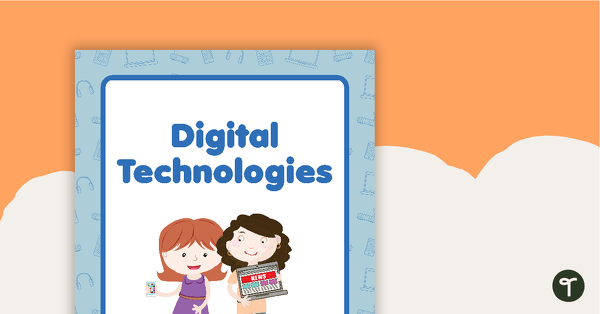
Digital Technologies Book Cover - Version 1
A Digital Technologies book cover to use on your students' workbooks.
- Plus Plan
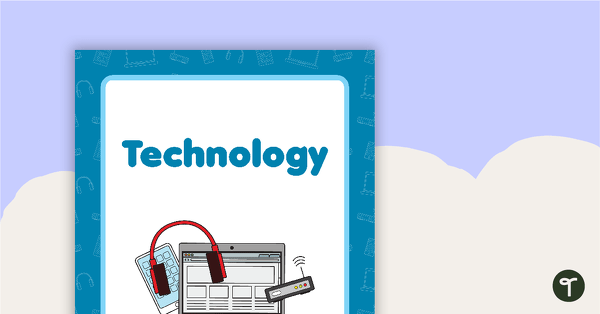
Technology Book Cover - Version 2
A Technology book cover to use on your students' workbooks.
- Plus Plan
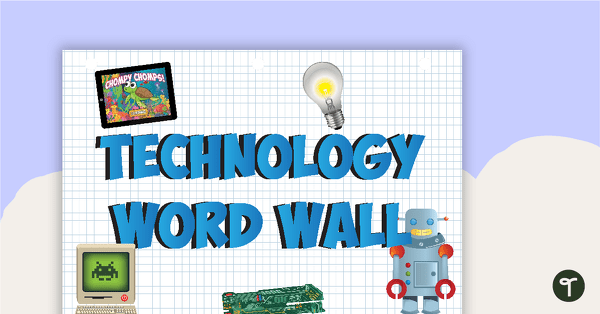
Technology Word Wall Poster
Use this Word Wall Poster to identify technology vocabulary in your classroom.
- Plus Plan
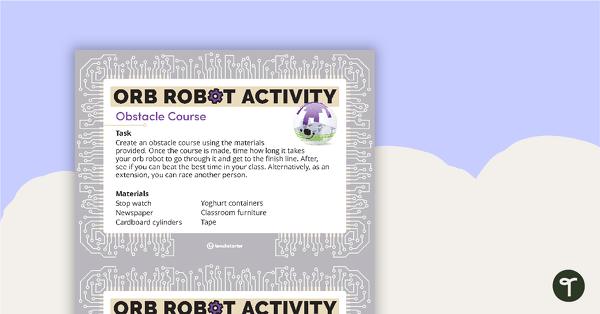
Orb Robot - Task Cards
A set of 12 orb robot task cards for students, suitable for middle and upper years.
- Plus Plan
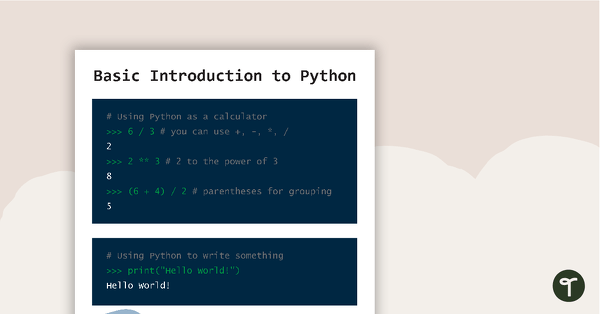
Basic Python Programming Language Poster Cheat Sheet
A basic Python Programming Language poster 'cheat sheet' to display in your classroom.
- Plus Plan
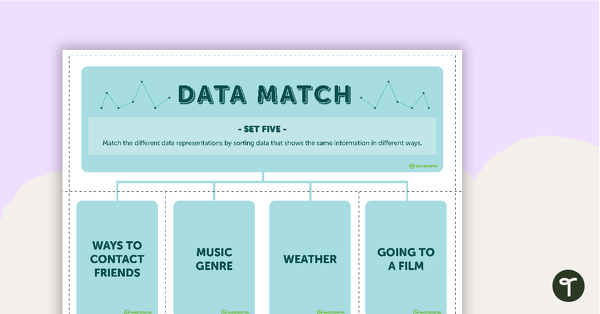
Data Match-Up Cards (Set 5)
A match-up activity for students to use when exploring data.
- Plus Plan
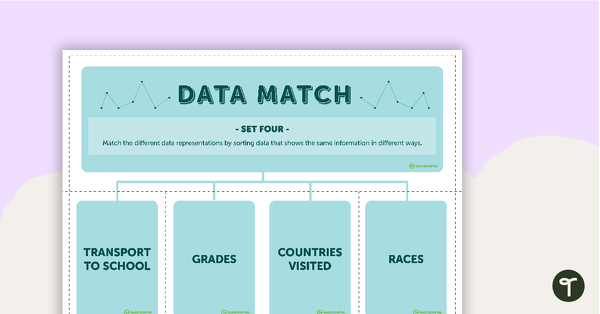
Data Match-Up Cards (Set 4)
A match-up activity for students to use when exploring data.
- Plus Plan
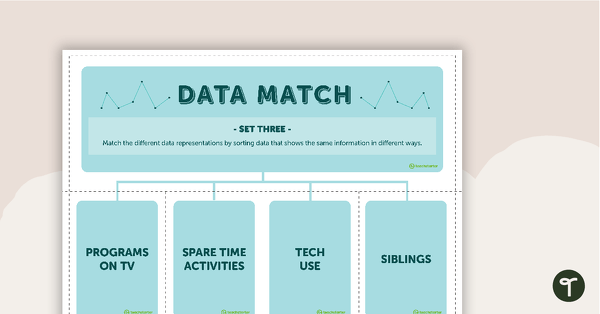
Data Match-Up Cards (Set 3)
A match-up activity for students to use when exploring data.
- Plus Plan
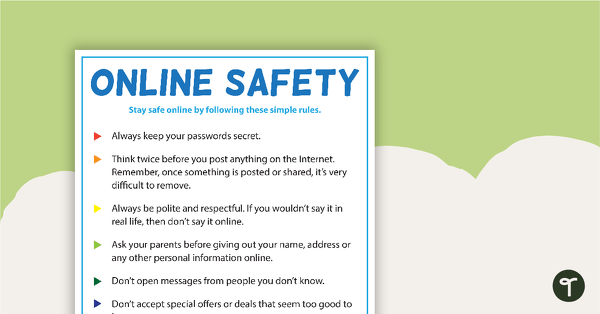
Online Safety Poster
A poster giving students information on how to stay safe online.
- Plus Plan
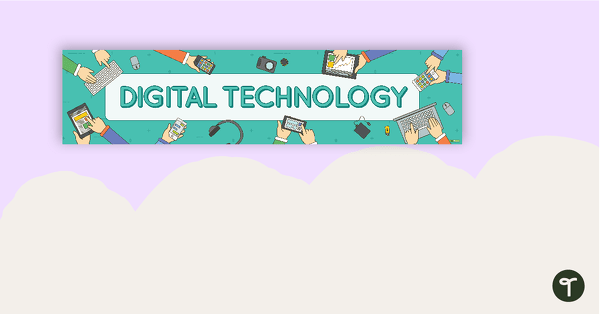
Digital Technology Display Banner
A classroom display banner to use on your 'Digital Technology' display board.
- Plus Plan
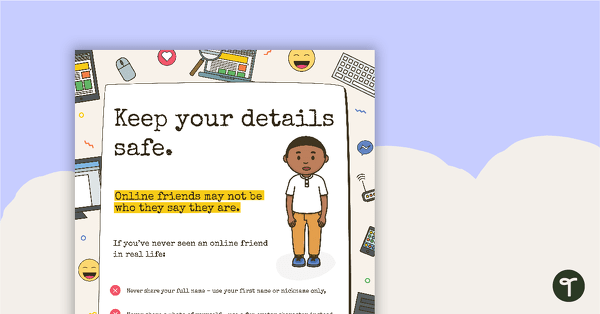
Cyber Safety Poster – Keep Your Details Safe
A cyber safety poster to help the students understand correct online behaviour.
- Plus Plan
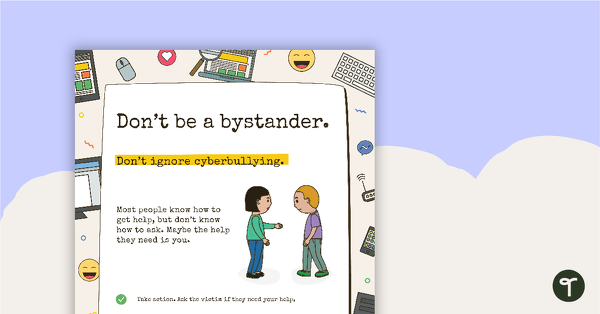
Cyber Safety Poster - Don't Be a Bystander
A cyber safety poster to help the students understand correct online behaviour.
- Plus Plan
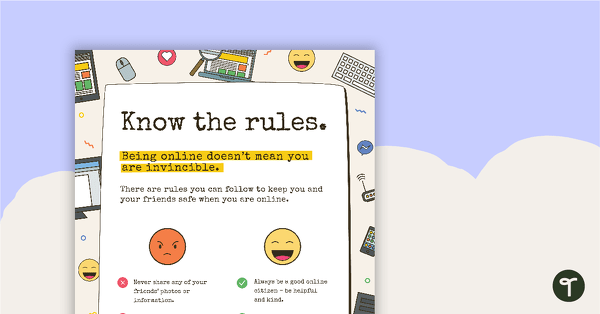
Cyber Safety Poster - Know the Rules
A cyber safety poster to help the students understand correct online behaviour.
- Plus Plan
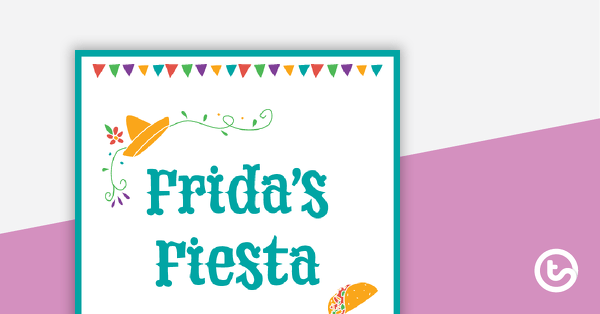
Frida's Fiesta: Dietary Requirements – Projects
A project where students can explore different dietary requirements and the types of food that cater for them.
- Plus Plan
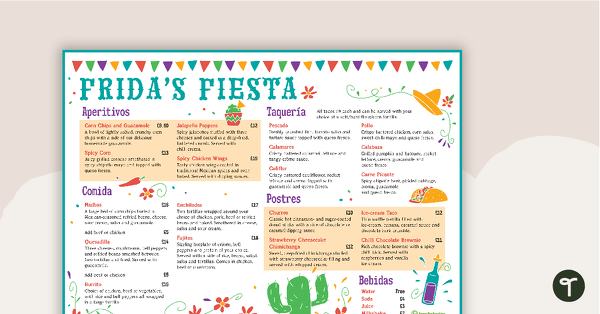
Frida's Fiesta – Stimulus Poster
A stimulus poster which includes a menu for a Mexican style restaurant.
- Plus Plan
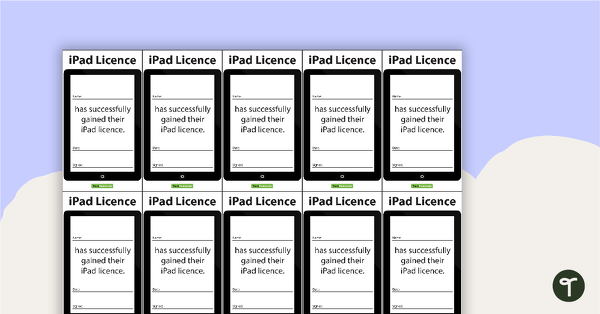
iPad Licence
Commemorate this momentous occasion with an official iPad licence.